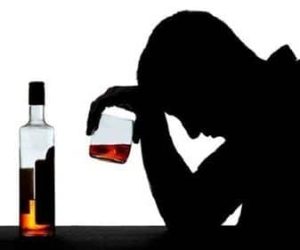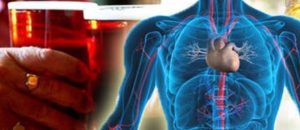Sometimes drinking habits can become problematic without you realising, and quite often an event occurs that will leave you concerned about the amount of alcohol you’re consuming. It’s important that you are honest with yourself about the extent of your alcohol use to prevent further damage to your mental and physical well-being.
What is an alcohol use disorder?
Alcohol use disorder refers to a chronic obsession to seek and drink alcohol. Someone suffering from alcoholism is unable to control their drinking habits and continue to drink alcohol despite any negative consequences that might occur as a result. With severe alcohol use disorders, individuals who have been drinking for prolonged periods will build up a tolerance to its effects. Tolerance can lead to physical dependence, resulting in unpleasant withdrawal symptoms when a person stops drinking or reduces the amount they drink without tapering.
Excessive alcohol use refers to any kind of drinking that puts your health and wellbeing at risk or results in other problems such as harm to others. Binge drinking is considered an example of dangerous drinking habits and could lead to alcohol use disorder.
If your drinking is causing significant distress to your life, or the life of others around you, you likely have an alcohol use disorder. The extent of this problem can range from mild to severe depending on how much alcohol you’re drinking and how regularly you drink. However, if your symptoms appear mild it is still recommended you still seek help to avoid any further devastation.
The signs and symptoms of alcohol use disorder vary depending on the severity of the problem. They can include, but are not limited to, the following:
• Feeling no control over the amount of alcohol you drink
• Unsuccessfully trying to reduce the amount you drink
• Spending a lot of time drinking or recovering from drinking alcohol
• A constant craving for alcohol
• Poor work or school performance as a result of heavy drinking
• Continued alcohol abuse despite the negative impact financially, physically and emotionally
• No longer participating in hobbies you once enjoyed
• Engaging in reckless behaviour like driving under the influence
• Developing a tolerance to alcohol so you need more to feel its effect, or you have a reduced effect from the same amount
• Experiencing withdrawal symptoms when you don’t drink, or drink to avoid these symptoms

Questions to answer if you feel your drinking may be a problem
Does your social life revolve around alcohol?
This includes planning your social events around alcohol, such as insisting you meet friends at a bar or club rather than suggesting any sober activities. An alcohol use disorder can cause you to lose interest in hobbies you once enjoyed, and instead you become preoccupied with drinking.
How much do you drink?
When asking yourself this question, you should consider both the amount of alcohol you’re consuming as well as the frequency of your habit. Alcoholism is a progressive illness which means it can worsen over time, so it’s important to identify how much your consumption has increased in a short space of time.
Do you usually end up drinking more than planned?
You might often promise yourself that you’ll only have a couple of drinks but will always end up drinking far more than you intended. Alcohol affects everyone in different ways depending on factors such as their height, weight and gender. If you drink in order to feel the stimulating effects of alcohol, you may need to drink more than someone else in order to achieve that. However, with frequent heavy drinking, you are at risk of building a tolerance to the effects of alcohol, meaning you will need more each time you drink in order to achieve the same “buzz”.
Do you blackout?
Many people associate “blacking out” with passing out completely. However, the circumstances don’t need to reach this point to identify a possible alcohol use disorder. Blacking out can refer to any type of memory impairment caused by excessive drinking, like being unable to remember parts of the evening.
Do you lie about how much you’re drinking?
Denial is a very common sign of any substance use disorder. If you find yourself being dishonest about the amount of alcohol you’re drinking or going out of your way to conceal the true nature of your habit, it is likely you have an alcohol use disorder.
Online alcohol use disorder tests
If you’re worried about the amount of alcohol you’re drinking and suspect you may be suffering from an alcohol use disorder, it is recommended you speak to a medical professional or an addiction specialist for advice on treatment options.
If you’re feeling unsure about whether your drinking habits are considered problematic, there are many online tests you can do which will give you an indication as to whether you have a problem.
Common symptoms of dangerous drinking habits
Binge drinking can lead to a range of adverse reactions from seizures to death, which often arise as a result of alcohol poisoning. Alcohol poisoning occurs when the amount of alcohol in your bloodstream increases as a result of heavy drinking. This can cause changes in your behaviours such as unstable moods, impaired judgment, slurred speech, inability to focus and poor coordination.
Alcohol withdrawal can be another unpleasant symptom of heavy alcohol use. Withdrawal occurs when alcohol consumption is stopped suddenly after periods of heavy and frequent use. The body tries to adjust to the absence of alcohol, which can result in symptoms such as sweating, rapid heartbeat, hand tremors, problems sleeping, nausea and vomiting, hallucinations, restlessness and agitation, anxiety, and occasionally seizures. Symptoms can be severe enough to impair your ability to function at work or in social situations, prompting you to drink again in order to feel normal.
When to seek help for an alcohol problem
If you find that your drinking is causing you financial, social, legal, or personal problems and you continue to drink despite these consequences, it’s likely time to examine your alcohol consumption. Excessive drinking is considered alcohol abuse if you continue to drink despite experiencing issues such as:
• Poor performance at school or work
• Neglect of your responsibilities
• Trouble with the law
• Drinking while driving
Because an alcohol use disorder is considered a progressive disease, if you do not get help for your risky drinking at this stage, you could be headed for much more severe issues.
People drink for various reasons, and while at first, it may start off as a desire to experience the stimulating effects of alcohol, it can soon become difficult to control. This can lead to alcohol dependency and eventually, addiction. Usually, there are unresolved psychological issues contributing to these behaviours that need to be addressed with counselling and therapy before you can begin living a sober life.
If you’re concerned about your alcohol use, or someone you know needs help, Which Rehab can help you take the next steps towards finding a rehab that suits your needs. Contact us on 0800 170 7000 to begin your journey to recovery.



